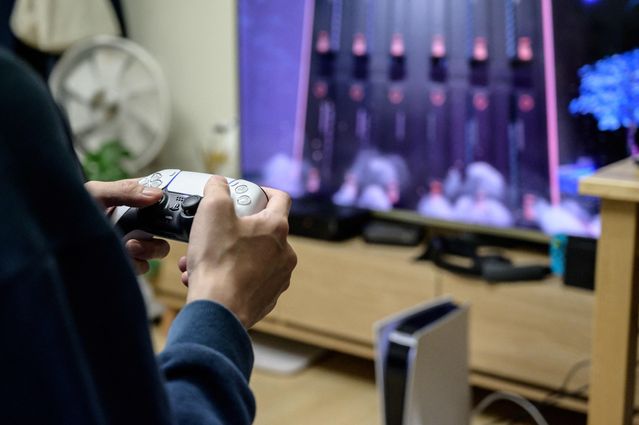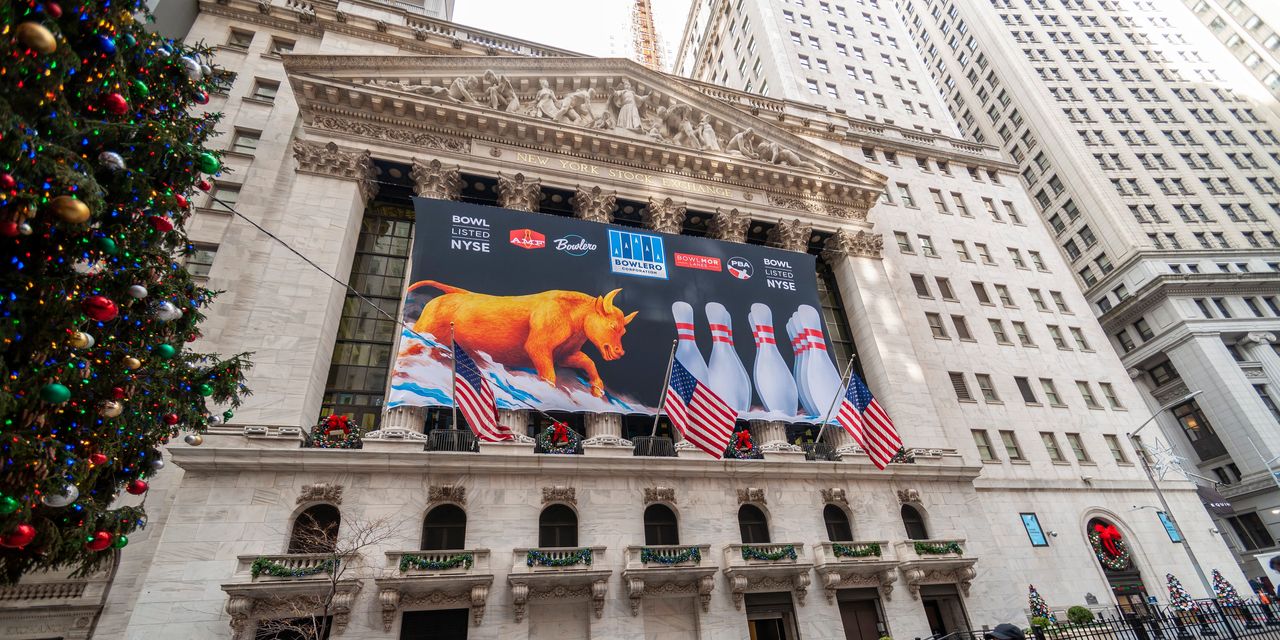Supply-chain shortages continue to be a near-term challenge for Sony SONY 1.01% and Nintendo. NTDOY 2.31% But their underlying businesses are still going strong.
Anyone who has tried to buy a PlayStation 5 realizes just how tight supply is right now. And Sony’s results for last quarter, announced Wednesday, confirmed that. The Japanese company shipped 3.9 million of the videogame consoles for the quarter ended December, meaning it only managed a slight increase for the holiday season compared with the previous quarter. And Sony is now expecting to sell 11.5 million PS5 for the fiscal year ending in March, down from its previous forecast of 14.8 million units, as it expects component shortages to continue. Sony’s shares fell 6% Thursday.

Sony revised expected sales of PS5 consoles as it sees component shortages continuing.
Photo: yelim lee/Agence France-Presse/Getty Images
Nintendo did better last quarter but it’s also facing supply-chain challenges. It sold 10.67 million Switch consoles last quarter. That’s a 7.7% year-over-year drop, but still surprisingly strong given the console is entering its sixth year of life. The launch of a new version with a better display probably helped. The company has now sold more than 103 million units of the Switch console, surpassing Wii’s 101.6 million. Nintendo also revised down estimated Switch shipments for the fiscal year ending in March to 23 million units from 24 million units, due to component shortages and logistics issues.
Despite the continuing challenges of shipping hardware, it’s encouraging that both companies are seeing more-stable sales of games, especially online. Despite an 8% year-over-year drop in game revenue for the December quarter, Sony recorded a 15% increase in operating profit in the segment and raised its operating profit forecast for the fiscal year. Lower marketing expenses compared with the previous year when the PS5 launched also helped. Nintendo likewise had relatively resilient software sales.
So while supply-chain constraints mean they cannot sell as many consoles as would otherwise have been the case, the two companies’ solid user bases means new games—which aren’t constrained by component shortages—can still sell very well.
Another question is, how will the two games giants react to Microsoft’s industry-shaking $75 billion acquisition of Activision Blizzard ? Sony already responded this week by buying game maker Bungie for $3.6 billion. More deals will likely come soon. Nintendo may, however, take a more low-key approach given the company’s tradition of developing its own branded games.
Delivering shipments of the videogame consoles that gamers are desperate to buy is the short-term challenge for Sony and Nintendo—not a terrible problem to have, all things considered.
Longer term, delivering content that people love remains their recipe for success.
Write to Jacky Wong at [email protected]
Copyright ©2022 Dow Jones & Company, Inc. All Rights Reserved. 87990cbe856818d5eddac44c7b1cdeb8








